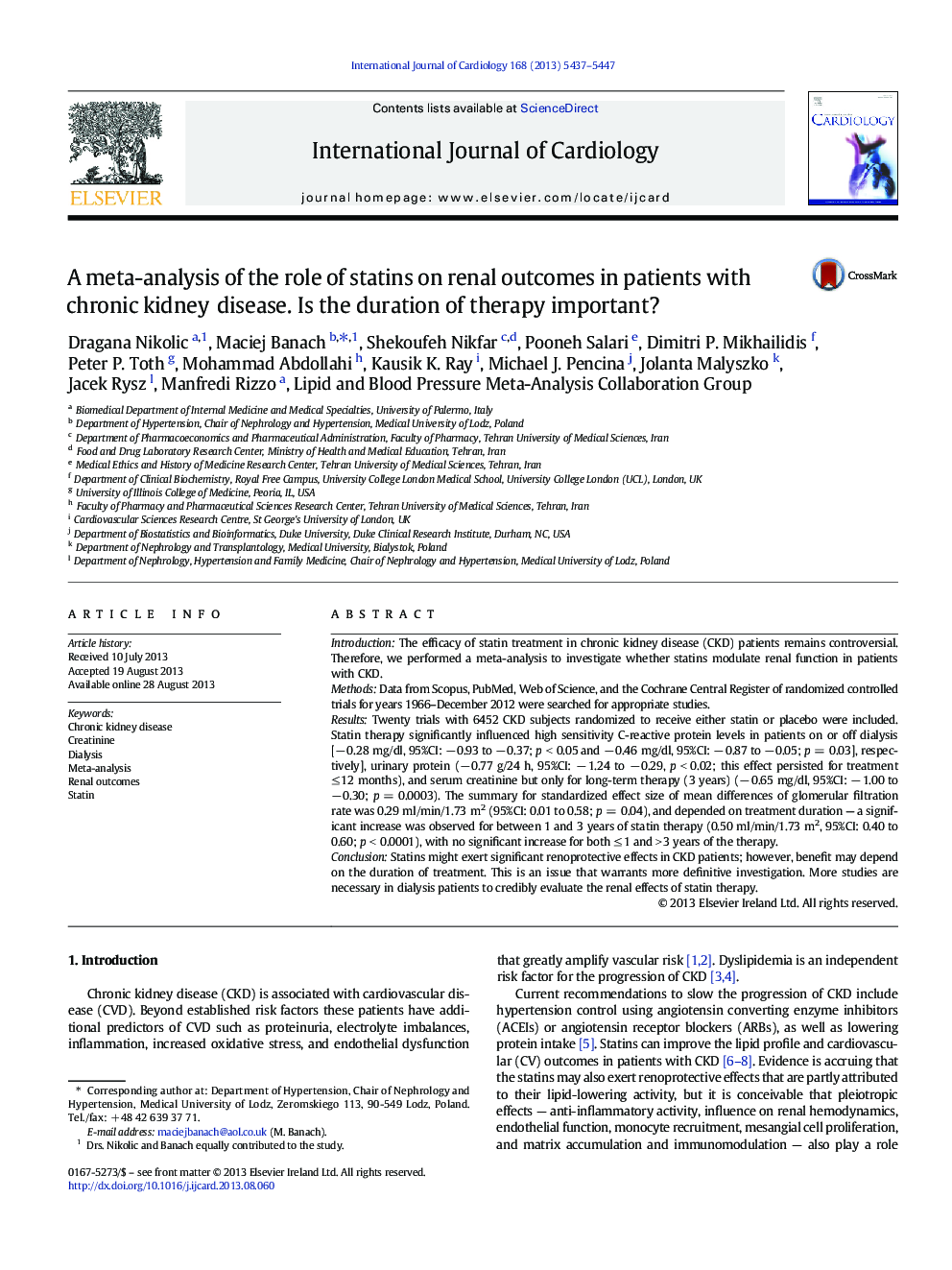| Article ID | Journal | Published Year | Pages | File Type |
|---|---|---|---|---|
| 5975153 | International Journal of Cardiology | 2013 | 11 Pages |
IntroductionThe efficacy of statin treatment in chronic kidney disease (CKD) patients remains controversial. Therefore, we performed a meta-analysis to investigate whether statins modulate renal function in patients with CKD.MethodsData from Scopus, PubMed, Web of Science, and the Cochrane Central Register of randomized controlled trials for years 1966-December 2012 were searched for appropriate studies.ResultsTwenty trials with 6452 CKD subjects randomized to receive either statin or placebo were included. Statin therapy significantly influenced high sensitivity C-reactive protein levels in patients on or off dialysis [â 0.28 mg/dl, 95%CI: â 0.93 to â 0.37; p < 0.05 and â 0.46 mg/dl, 95%CI: â 0.87 to â 0.05; p = 0.03], respectively], urinary protein (â 0.77 g/24 h, 95%CI: â 1.24 to â 0.29, p < 0.02; this effect persisted for treatment â¤Â 12 months), and serum creatinine but only for long-term therapy (3 years) (â 0.65 mg/dl, 95%CI: â 1.00 to â 0.30; p = 0.0003). The summary for standardized effect size of mean differences of glomerular filtration rate was 0.29 ml/min/1.73 m2 (95%CI: 0.01 to 0.58; p = 0.04), and depended on treatment duration - a significant increase was observed for between 1 and 3 years of statin therapy (0.50 ml/min/1.73 m2, 95%CI: 0.40 to 0.60; p < 0.0001), with no significant increase for both â¤Â 1 and > 3 years of the therapy.ConclusionStatins might exert significant renoprotective effects in CKD patients; however, benefit may depend on the duration of treatment. This is an issue that warrants more definitive investigation. More studies are necessary in dialysis patients to credibly evaluate the renal effects of statin therapy.
